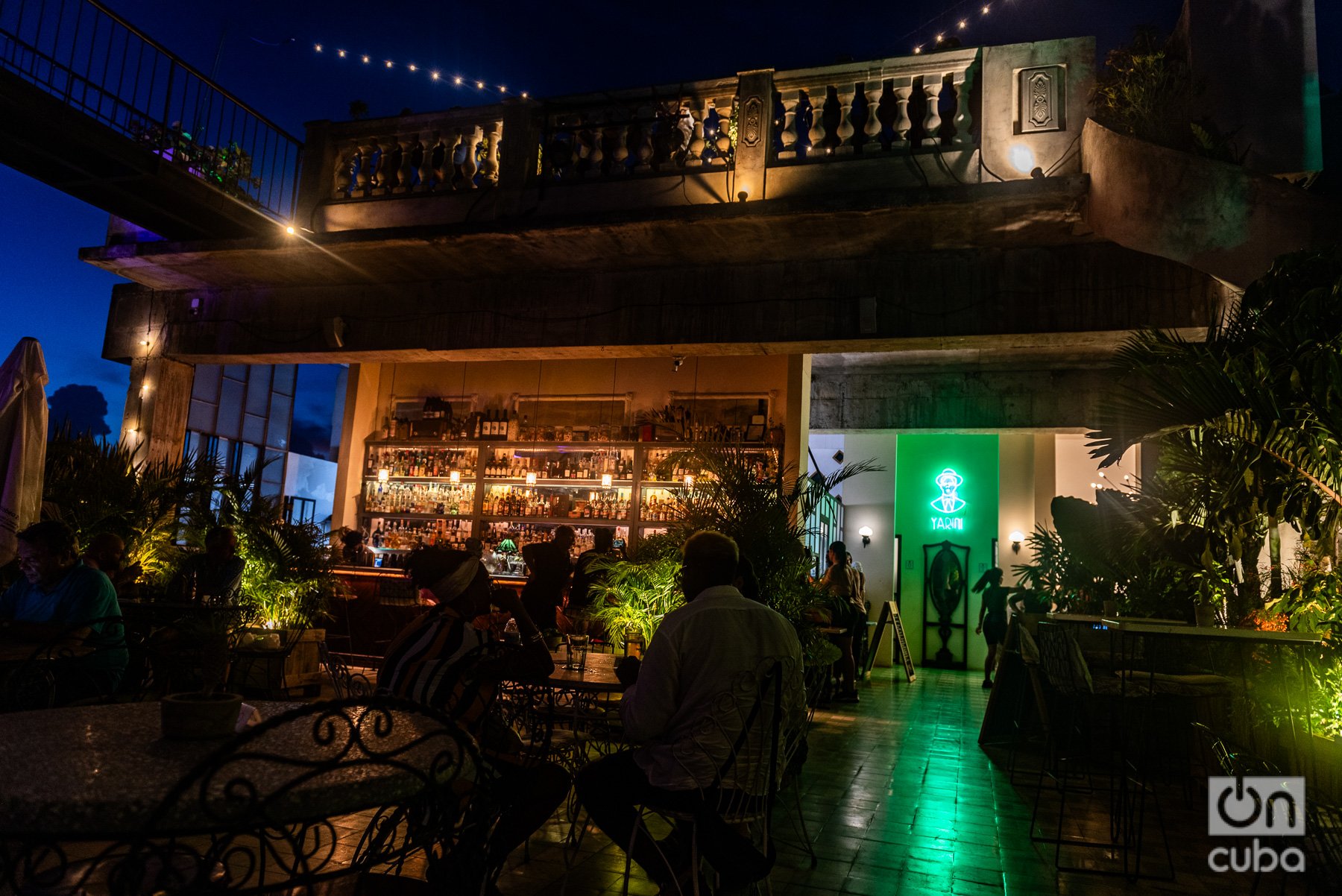The Cuban economy is suffering its most acute crisis in 30 years, reeling from maximum-pressure U.S. sanctions imposed by Trump and mostly maintained by Biden.
But the island’s nascent private companies, until recently prohibited, are thriving—now on track to employ more people and import more goods than Cuba’s state sector.
The news apparently hasn’t reached the chair of the House Foreign Affairs Subcommittee on the Western Hemisphere, Rep. María Elvira Salazar (R-FL), who will be holding a hearing on Thursday entitled “The Myth of the New Cuban Entrepreneurs.”
A Miami-born Cuban-American known for her hardline positions on Cuba, Salazar is expected to interrogate two State Department officials, Eric Jacobstein and Enrique Roig, on the Biden administration’s professed support for Cuba’s private businesses.
“Of course we’re real. The idea that we’re a myth makes no sense.” said Amel Herrera, CEO of Cuban e-commerce firm Acubamos. “Instead of debating our existence, they should be debating how after two years they still haven’t passed any concrete measures or solutions for Cuba’s private sector.”
If Cuba’s entrepreneurs are not a myth, the Biden administration’s full-fledged support for them may be.

Last September, Bloomberg reported that Biden was days away from announcing a packet of measures to empower Cuban entrepreneurs, a lynchpin of his Cuba policy. The administration was expected to lift restrictions on Cuba’s private sector, allowing Cuban business owners to open and operate U.S. bank accounts from Cuba, authorizing “U-turn” transactions to Cuba through the U.S. financial system and permitting U.S.-based financial technology firms to serve users in Cuba.
Four months later, Cuban entrepreneurs are still waiting. The Biden administration backed off the measures after being pressured by Salazar’s ally, fellow Cuban-American hardliner Rep. Mario Díaz-Balart (R-FL), a Congressional staffer told The Miami Herald.
Díaz-Balart is alleged to have used his leverage as chair of the House Appropriations Subcommittee on State and Foreign Operations to cow the Biden administration into backtracking—threatening to hold up other administration priorities, like aid to Ukraine, if the Cuba measures are passed.
“We all got our hopes up about these new measures, especially after Trump’s barrage of sanctions, but then nothing happened,” said Cuban entrepreneur Ernesto Barrios Gómez, who owns private watch manufacturer Tiempo de Luz. “It’s like they’re playing with us.”
The Trump administration redesignated Cuba as a state sponsor of terrorism, implemented broad restrictions on trade, travel and investment, and sanctioned Cuba’s energy sources— contributing to a 10% drop in GDP, prolonged power outages and scarcities of basic foods.
“Cuban entrepreneurs need U.S. support now more than ever,” said former Democratic congressman Joe Garcia, who has defended Cuba’s mipymes (micro, small and medium-sized businesses), particularly in Florida. “The situation in Cuba is dire, and the budding private sector is providing what little hope there is left in Cuba.”
Salazar claims that Cuba’s emerging non-state sector—made up of nearly 10,000 businesses legalized since 2021— is composed primarily of loyalists to Cuba’s political system and relatives of Cuba’s military leaders plotting to enrich the state and finance repression against dissidents.
“What I’m against is the U.S. financial system indirectly helping the Cuban regime and its repressive apparatus,” Salazar told Miami news outlet America TeVé last September.
Cuba’s entrepreneurs disagree with Salazar’s characterization.
“The fact that we’re private businesspeople doesn’t mean in any way that we’re tied to the government,” said Yulieta Hernández Díaz, president of Cuban construction firm Pilares Construcciones. “In any country around the world you have to register your business, pay taxes, and follow the laws where you’re operating. It’s the same in Cuba.”
Many of Salazar’s talking points mirror those found in “investigative exposés” published by Miami-based news outlets Cubanet, ADN Cuba, and Yucabyte, which allege that Cuba’s entrepreneurs are complicit in a Cuban government scheme to evade U.S. sanctions and prop up its security forces.
These outlets have received funds from the U.S. government through its “democracy promotion” programs for Cuba—what critics call “regime change” efforts plagued by high-profile scandals, misuse of funds and limited results.
Diaz-Balart’s chairmanship of the House Appropriations Subcommittee on State and Foreign Operations gives him control over this funding. In June, he introduced amendments to a bill that would ramp up annual funding for Miami-based Radio and TV Martí and “democracy promotion” programs aimed at Cuba to an unprecedented $65 million.
Even as the U.S. government funnels money to detractors of Cuba’s private sector, the Biden administration has publicly backed the island’s entrepreneurs.
“Longstanding U.S. policy supports Cuban entrepreneurs and the growth and independence of the Cuban private sector to maximize benefits for the Cuban people and minimize benefits for the Cuban government,” a State Department official told El Nuevo Herald.
The charge d’affaires of the U.S. Embassy in Havana, Benjamin Ziff, told Cuban news outlet El Toque early last year that “Cuba’s private sector is real…and is thriving, independently of the government.”
The U.S. Embassy has organized a range of workshops for Cuban entrepreneurs, some imparted by Cuban Americans, including a program that brought Cuban women business-owners on visits to the U.S.
But many Cuban entrepreneurs say that as much as they appreciate small business training, they prefer sanctions relief.
Last April, hundreds of Cuban entrepreneurs penned a letter to President Biden, supported by dozens of U.S. businesses, requesting his administration facilitate U.S.-Cuba financial transactions, establish permits for U.S. businessmen to invest in Cuba, expand trade opportunities and remove Cuba from the U.S. list of state sponsors of terrorism.
The Biden administration didn’t respond to their appeal, but soon after, the State Department’s top official for Latin America tweeted that “new measures for Cuba’s independent businesses will be announced shortly.”
While Biden has left much of Trump’s Cuba policy in place since assuming office, his administration rolled back some restrictions primarily aimed at Cuban Americans.
In 2022, the administration re-authorized flights to Cuban cities outside of Havana, resumed formal remittance channels, reopened and staffed the embassy, and resumed a family reunification program.
Biden also licensed some U.S. companies to directly export cars, buses, and construction and agricultural equipment to Cuban entrepreneurs on the island.
In September, 70 Cuban entrepreneurs traveled to Miami for an unprecedented series of meetings with leading Cuban-American businessmen, officials from the Departments of State, Treasury and Commerce, legal experts and even a former Miami Republican congressman.
“I’ve seen some steps from Biden, some attempts to work within the limits of the embargo,” said Carlos Gómez, founder of Cuban film production company Wajiros Films. “But it’s not at all close to what we expected and it’s not nearly enough. We still have Trump’s measures economically strangling us while continually being told they’re ‘helping’ us.”
Jacobstein, the official set to testify Thursday, served as Biden’s director for Cuba and Central America at the National Security Council and recently met top Cuban official Johana Tablada for bilateral talks in Washington.
A month later, he led a U.S. delegation to Havana for semi-annual talks on migration, one of a handful of areas where the U.S. and Cuba have regular dialogue.

Nearly half a million Cubans have tried to cross the U.S. border over the last two years alone, as widespread shortages of food, fuel and medicine—exacerbated by U.S. sanctions and the lingering impact of Covid on Cuba’s tourism sector—have made life in Cuba untenable for many, especially professionals and young Cubans.
“Concrete support for Cuba’s best and brightest— its entrepreneurs—can help reduce migration to the US-Mexico border, which could aid Biden’s re-election efforts in 2024,” said García, the former Congressman. “This independent and growing sector is what U.S. policy has always wanted, and there’s no better way for Biden to win trust with Cuban American voters than by delivering on his pledge to help grow Cuba’s private sector, which is truly the country’s future.”










There is definite statement from the top Cuban official, just mention at the end of the article, Johana Tablada, in Cuba Debate webpage: She stated that US authorities speak about “private businesses in Cuba, but simply do not know Cuba.” She added: “There is no difference between state and non state forms of economic activities.”
My understanding is: Why does Mipymes’ owners only look to the US for business? They have Mexico, Brazil, Argentina, Colombia, and many other countries to import and export goods and services.
I cannot understand why Cuba is so absolutely dependent on the United States.